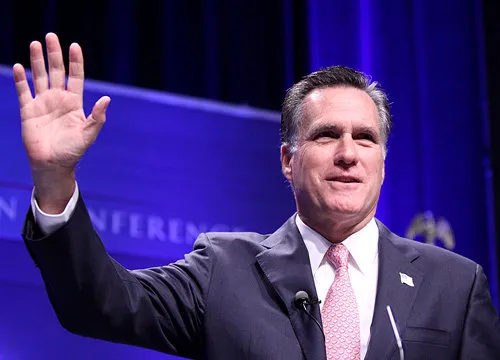Table of Contents
The most newsworthy action from the early campaign was the group of establishment Republicans who chose not to toss their hat in the ring, a list that includes Gov. Chris Christie of New Jersey, Gov. Mitch Daniels of Indiana, and Gov. Tim Pawlenty of Minnesota. With Romney left as the only moderate Republican in the field, the race became Romney versus the rest of the field.
A host of populist candidates looked poised to challenge Romney, only to be done in by scandal and a lack of resources. Herman Cain made headlines with his 9-9-9 tax proposal, but dropped out after allegations of past infidelities. Michelle Bachmann looked like she might be able to channel Tea Party angst into a viable campaign, but a poor showing in Iowa did her in. John Huntsman was popular with political elites and editorial boards, but struggled to connect to the average voter.
In a campaign with so many twists and turns, Thursday may have been the most frantic of all. Rick Perry finally threw up the white flag and put his support behind Newt Gingrich. Hours later, ABC aired an interview two days before the South Carolina primary in which Newt Gingrich’s ex-wife Marianne Gingrich said that her husband suggested they have an open marriage so he could continue an affair with his current wife Callista.
Bill Whalen, a research fellow at the Hoover Institute had a hard time comparing the ABC interview to any other historical campaign occurrence.
“This is something almost entirely new,” he explained. “We’ve had a lot of women coming forward, but I can’t remember a revelation like this at such a crucial time.”
The question is whether the interview will detract from Gingrich’s strong showing in South Carolina. Voters have indicated in polling that the former Speaker of the House’s marital history is not a primary concern. On Thursday night, CNN’s John King opened the debate with a question about the allegations.
Gingrich responded with controlled rage, “The destructive, vicious, negative nature of much of the news media makes it harder to govern this country, harder to attract decent people to run for office. And I am appalled that you would begin a presidential debate on a topic like that.”
The Charleston, South Carolina audience cheered Gingrich’s retort loudly. Whalen explained how Gingrich benefits from his long-term antagonism with the news media.
“Every politician needs an adversary to be successful,” he said. “Gingrich uses the media as his foil.”
If Romney pulls off an upset in South Carolina, he will be very close to wrapping up the nomination.
“South Carolina is more complex than people make it out to be,” said Whalen. “The upstate is definitely very conservative, very populist, but the low country is more establishment Republican. If you look at the map from the 2008 GOP primary, you see huge support for Huckabee in parts and for McCain in others.”
But, if Gingrich can overcome a controversial week to secure South Carolina, the Republican primary could drag on indefinitely. Whalen foresees both Gingrich and Ron Paul sticking it out to the bitter end. Gingrich has nothing to lose and Paul views the visibility of the campaign as a goal in and of itself.
Romney’s predicament reminds Whalen of George H.W. Bush’s re-election campaign in 1992, for which he served as a speechwriter. Pat Buchanan was a clear underdog, polling at around 30%, but he refused to concede the nomination.
“It was very frustrating,” remembers Whalen. “Ideally, if you’re an establishment Republican you want Romney to win on Saturday so you can start to figure out how this party can come together.”
On the surface, a drawn out Republican slug-fest seems like a losing scenario for Romney, who would be exposed to further criticism and given more opportunities to falter. But recent history suggests that a protracted primary battle can be a blessing in disguise. Hillary Clinton did not concede the Democratic nomination to Obama until June, 5th in 2008. The extended primary forced Obama to sharpen his message and develop a more robust campaign team across the country.
“In the case of Romney, it’s not what his opponents are saying about him,” said Whalen. “It’s how he reacts. I think he responded poorly to requests for his tax receipts.”
“He should have said, ‘Look I pay my taxes like every other American.’ Instead, he turned the issue into a five-day news story by continuing to talk about it and releasing that he pays a 15% tax rate,” Whalen continued. “His campaign made a poor strategic decision.”
“It all comes down to what voters are looking for. In 1992, Bill Clinton was the Anti-Bush. In 2008, Obama was certainly the anti-Bush. The question is what does it mean to be the anti-Obama.”
If Romney can navigate his way out of a Republican primary that is sure to provide more surprises, then his task will be to prove to the American people that he can out-perform Obama as a president. It seems certain that his task in the general election will be more straightforward.





